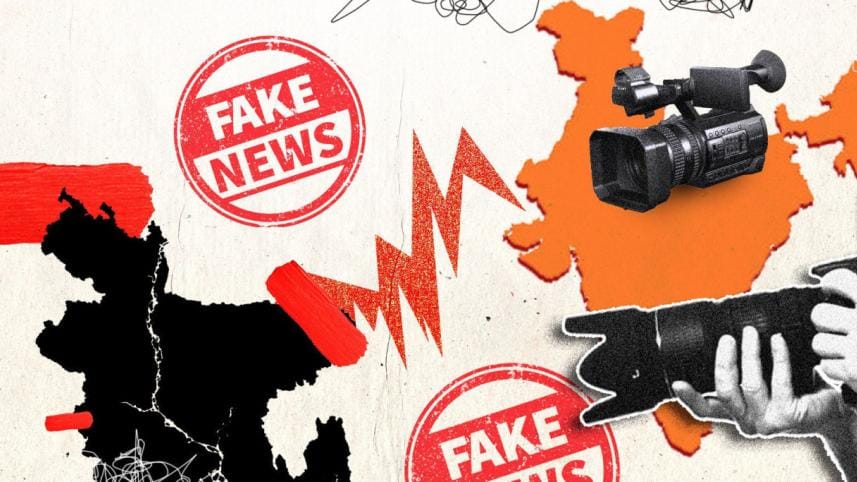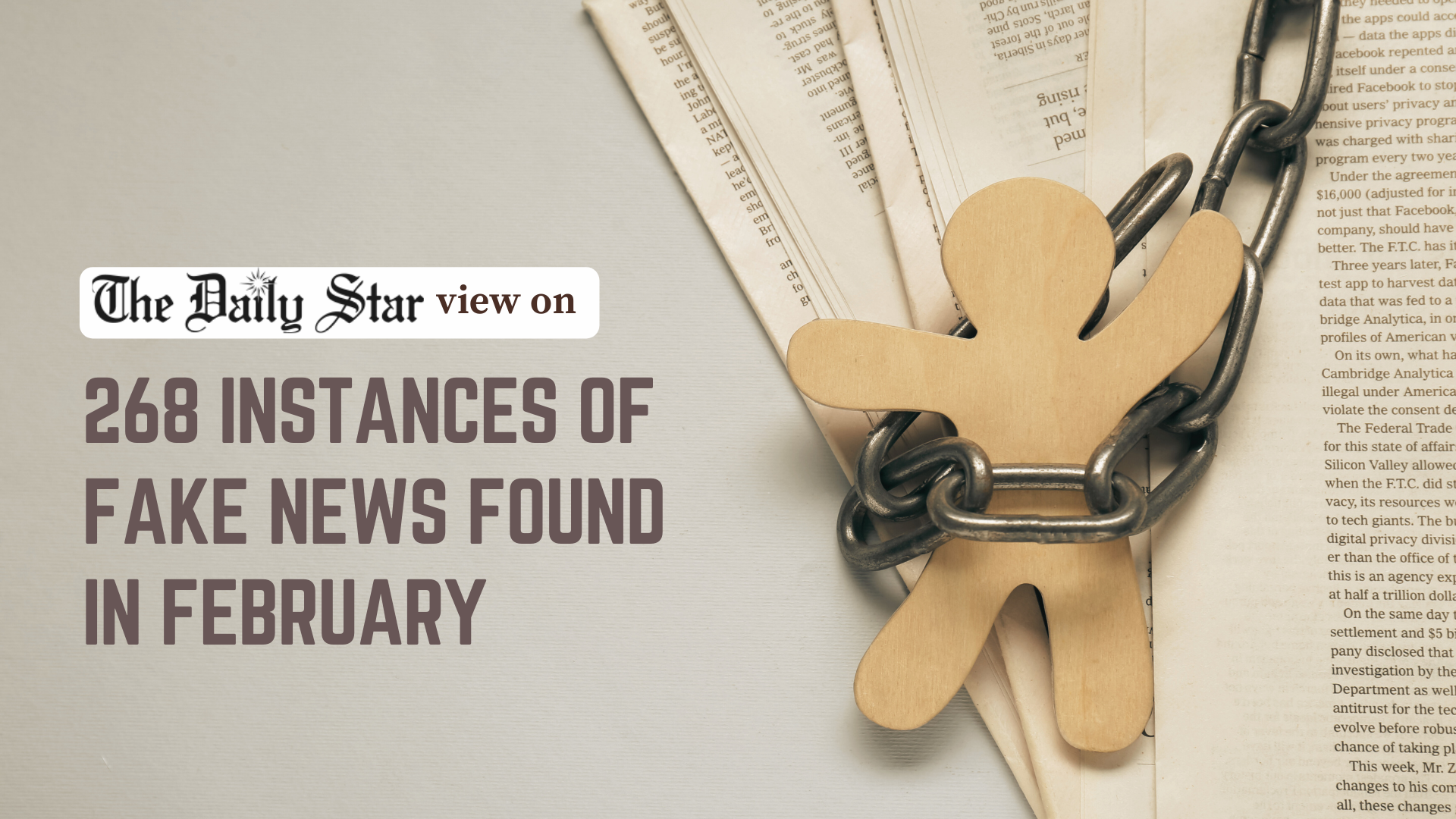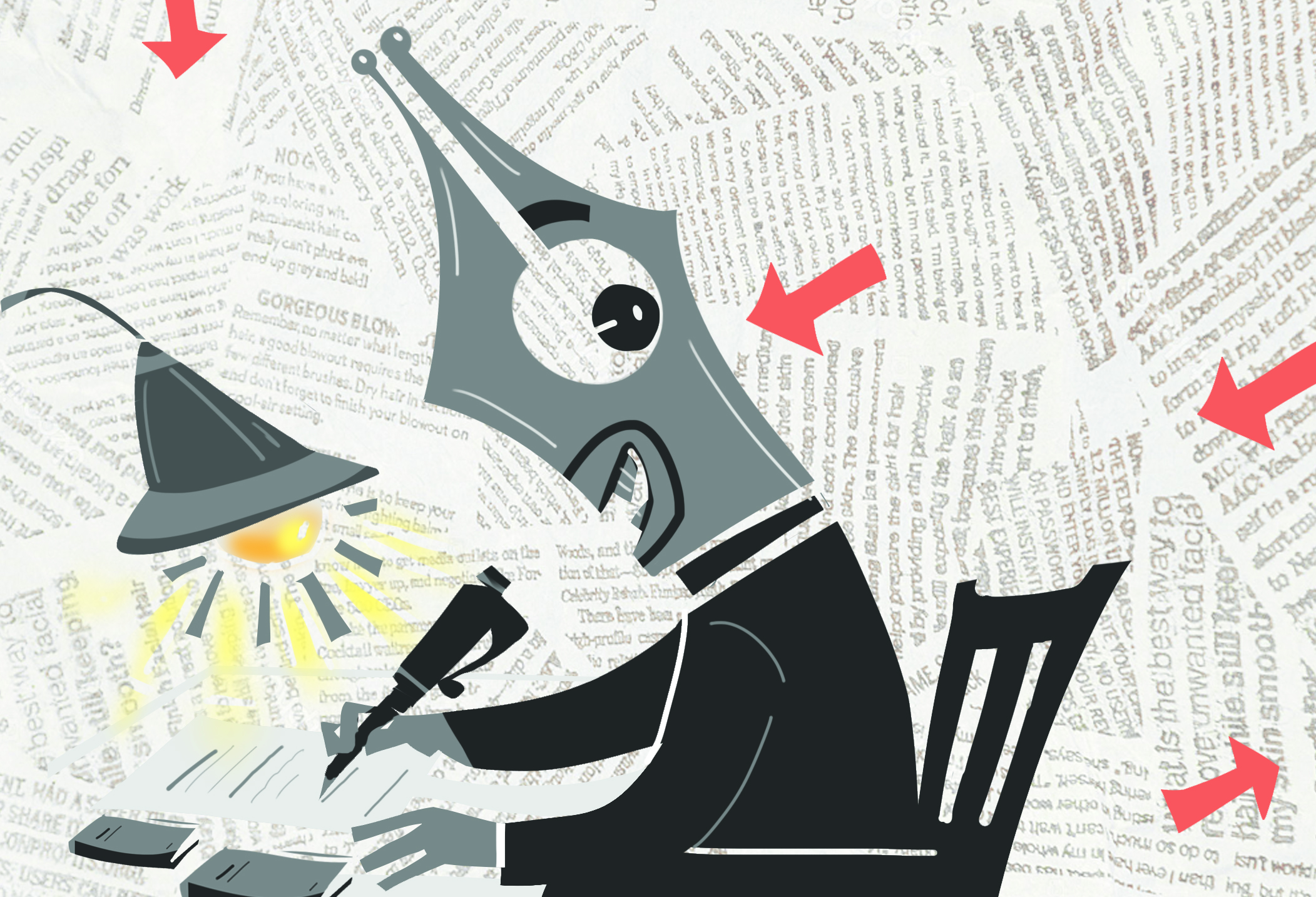What Bangladesh’s fake news boom says about our information crisis

Something curious is happening on Bangladeshi social media. Pages that look almost identical to our leading newspapers and TV channels are spreading exaggerated or entirely false stories. The logos are copied, the fonts are identical, and even the headlines sound familiar. Many users know these are fakes, yet they follow, share, and debate them daily. Why? The answer goes deeper than gullibility. It tells us something about our fractured media system, our politics of fear, and the psychology of belonging.
When mainstream news loses credibility, counterfeits rush in. Years of state control, legal threats, and corporate dependence have left the professional press cautious and predictable. The Digital Security Act, 2018, was revamped as the Cyber Security Act (CSA), 2023, but it held the same spirit. Journalists have learnt to avoid sensitive topics, while readers have developed the ability to read between the lines. Over time, silence began to look like complicity. Many ordinary people came to believe that mainstream media could no longer tell the truth. In that vacuum, mirror pages emerged as rebellious alternatives—unverified, emotional, and fast.
Political communication theory helps explain this: when institutions restrict information, informal networks fill the gap. During the quota reform protests and the violent days of July 2024, internet shutdowns and censorship created what scholars call "information voids." People turned to whoever seemed to know more. Mirror pages, posing as bold truth-tellers, entered that void. They offered speed and certainty when official channels hesitated.
Psychology adds another layer to this. Human beings are not neutral processors of information; we believe what feels right, not necessarily what is true. Theories of cognitive bias show that people are drawn to information that conforms to their emotions. Mirror pages thrive because they speak to anger, frustration, and hope. They say aloud what people already suspect. Each click and share becomes a small act of defiance—a way to signal belonging in a polarised society.
The social media environment amplifies this bias. Facebook remains the main news source for millions of Bangladeshis. Its algorithm rewards engagement, rather than accuracy. A sensational headline gets more visibility than a balanced report. Mirror pages have a structural advantage: they can shout louder, post faster, and never correct themselves.
However, blaming technology alone misses the point. The deeper crisis is moral and institutional. When political competition collapses into propaganda, citizens start trusting whatever sounds most convincing. What we are witnessing is not just a digital problem—it is a democratic one.
To fix it, we must rebuild credibility from the ground up. The first step is legal reform. Criminalising errors and opinions has only driven journalism underground. The newly approved Cyber Security Ordinance, 2025, must deliver clear protections for free expression. Without that, every journalist will continue to self-censor, and mirror pages will continue to fill the vacuum created by silence.
Second, newsrooms must change how they communicate. Too many outlets still write for officials, not audiences. Transparency and plain language matter. Explain how stories are verified. Admit uncertainty when facts are unclear. Publish corrections promptly and visibly. Honesty about the process builds more trust than polished evasions.
Third, platforms must share responsibility. They know which pages impersonate legitimate outlets. They can verify original logos, restrict deceptive lookalikes, and promote fact-checked content in moments of crisis. Finally, we need civic education that treats media literacy as part of citizenship. Schools and universities should teach students how to verify claims, cross-check sources, and resist emotional baiting. Doubt should not be seen as disloyalty—it is the foundation of democracy.
Mirror pages are not merely parasites living off mainstream media. They are symptoms of a society struggling with trust. They thrive because truth has become uncertain and silence has become normal. The way to defeat them is not through censorship but by restoring confidence in real journalism and real accountability. Only then will people stop following the mirror and start looking for the light beyond it.
Arifur Rahaman is a PhD student in the Department of Political Science, University of Alabama, USA.
Views expressed in this article are the authors' own.
Follow The Daily Star Opinion on Facebook for the latest opinions, commentaries and analyses by experts and professionals. To contribute your article or letter to The Daily Star Opinion, see our guidelines for submission.




 For all latest news, follow The Daily Star's Google News channel.
For all latest news, follow The Daily Star's Google News channel. 

Comments